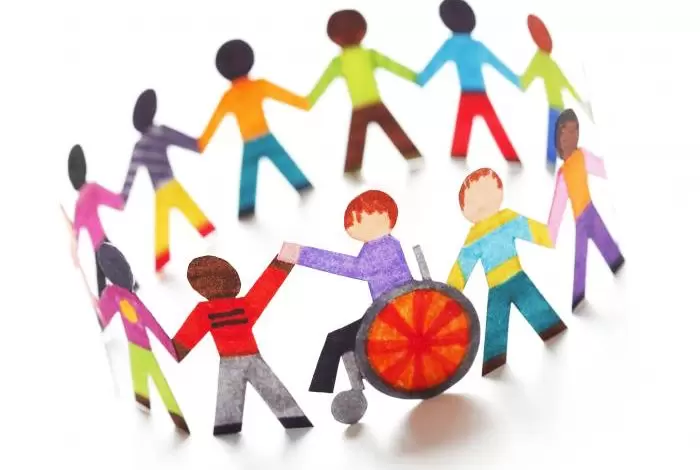
Every person faces various challenges in life. Some stand firm against tough times and achieve success, while others may falter and rely on support from others. With determination and unwavering resolve, success is within reach. Such is the story of Fazilat, a disabled girl from Charsadda, who hails from a poor family and is the daughter of a daily wage laborer.
Fazilat shares, "I received my early education from a nearby government school in my area. The high school was about 3 kilometers from our village. Walking there was difficult, and my father couldn't afford the rickshaw fare. However, I didn't give up and started tutoring school children, which covered my commuting expenses. I also completed my bachelor's degree. This journey was not easy, as people from the area and family would often say hurtful things, questioning what a disabled girl could achieve with an education."
According to the 2023 census, there are 7,448,574 disabled individuals in Pakistan, with 4,088,899 men and 3,359,675 women. In Khyber Pakhtunkhwa, there are 1,285,283 disabled individuals, including 700,866 men and 584,387 women.
Also Read: Tragedy in Peshawar: Boy and Girl Murdered in Honor Killing
Commenting on societal attitudes towards disabled women, Abia Akram, Project Director of the NGO Special Talent Exchange Program, said, "Due to the patriarchal system in Pakistani society, disabled women are not considered valuable members of society and are often denied opportunities in education and other fields. They face negative attitudes and perceptions, which adversely affect their mental health."
Fazilat, reflecting on these societal attitudes, said, "These comments only strengthened my resolve, and I worked even harder. For the past three years, I have been working as a local coordinator for an NGO, supporting my family financially and providing interest-free loans to poor women and widows in the area. Thanks to these loans, about 30 to 35 women in my area have started respectable livelihoods, enabling them to support their families."
Those who once deemed Fazilat's pursuit of education unnecessary now approach her for loans for their relatives and acquaintances. Fazilat feels immense joy when she hears these requests, as it validates her hard work, perseverance, and dedication to education, allowing her to support others.
One of the women who received a loan from Fazilat said, "I bought a sewing and embroidery machine with the money. I sew and embroider clothes for local women for a fee, which allows me to support my children."
Fazilat is a shining example for all disabled individuals who resort to begging and seeking help from others. She has defied society's patriarchal norms and courageously faced the negative attitudes that often discourage people. Fazilat says she understands the struggles and hardships of other women because she has experienced them herself.